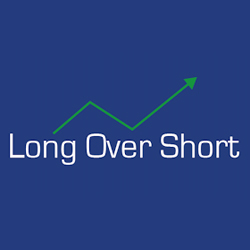
You are considered self-employed if your source of income is from operating a business, engaging in commerce, or engaging in a profession. Because you don’t have a boss to deal with, it may sound really nice, but it also has its own set of difficulties. To begin with, you must handle your own bookkeeping and accounting in order to assess your financial situation.
Additionally, you must audit your statements to ensure that you are paying the necessary taxes to the BIR. Notably, errors in computations and failure to provide supporting documentation can lead to substantial fines and accruing interest arrears. Additionally, you are now subject to a thorough BIR audit and inquiry, which can be extremely stressful. Therefore, it is essential to be aware of all your commitments in order to prevent these potential problems.
You are legally allowed to use deductions to legally reduce your taxes when you work for yourself. But you must meticulously record all corroborating evidence. When working for yourself, you have the option of choosing between itemized deductions and optional standard deductions (OSD). Keep in mind that there is no such thing as a tax system that fits everybody. Understanding these two is crucial since it will enable you to decide which of the available options best suits your needs. Here is more information about them.
Have you ever been rejected by banks and lending companies as a self-employed person because you couldn’t present them with proof of income or made mistakes when creating your paystubs, prompting these organizations to reject them?
Being your own employer has many benefits because you have only yourself to answer to. But it also means that you have to handle everything on your own, including creating your paystubs. If done incorrectly, going it alone could become tiresome and difficult. It takes up time that may be used for other crucial tasks.
Deductions Itemized
You must identify all of the expenses that will be deducted from your gross income in order to lower or diminish the amount of your taxable income when itemizing your deductions. Keep in mind that thorough bookkeeping and accounting are required to record relevant transactions. After all, the following are the only itemized deductions from your gross income that are permitted:
-
Wages and salaries
-
Communication Fees for the Rental
-
Office Equipment
-
Travel Charges
-
Gas and toll costs
You must adhere to the deductibility requirements in addition to knowing what deductions are permitted by the BIR. See the following information, which you must be aware of before claiming these itemized deductions:
-
The deductions must be reasonable and required for the operation of your firm.
-
The amount of the deductions should be appropriate.
-
The inferences drawn should be properly supported.
The amount left over after itemized deductions are removed from your income is your taxable income.
Standard Deduction Optional (OSD)
You are allowed to deduct 40 percent of your gross income using the Optional Standard Deduction, or OSD. As a result, you can simply report that your expenses make up 40% of your income rather than keeping account of every penny you spend. Since they can establish a flat amount right once depending on your income rather than having to meticulously log every transaction, this is advantageous for those organizations that don’t have many deductibles.
The one to Pick
Do you have trouble deciding which of the two deductible alternatives to choose for yourself? In order to assist you, let’s pretend that you are a self-employed person who earns a gross monthly revenue of $20,000 from providing services.
Just a reminder that this is not suggested for people who are self-employed and sell items. Learn high income skills and use them to your advantage to increase your value.
The one you decide between the two will depend on your self-employment scenario. You might think about itemized deductions if you own a company with substantial operational costs. The decision you must make is the one that will result in the greatest overall tax debt reduction.
Just keep in mind that you should make your choices for the deductible option within the first quarter of the year. Remember that based on your scenario or circumstance, your choice will vary. Itemizing your deductions can occasionally make more sense than opting for the standard deduction.
The only way to determine which is best for you is to examine your financial statements and open your books. It may be wise to get in touch with a qualified accountant if this is puzzling for you. Call our team of CPAs now, and we’ll help you decide which course of action is appropriate for your particular operations. In addition to accounting and bookkeeping, we can audit your books and make sure you maintain tax compliance to help you avoid any consequences.


 Hot Features
Hot Features













